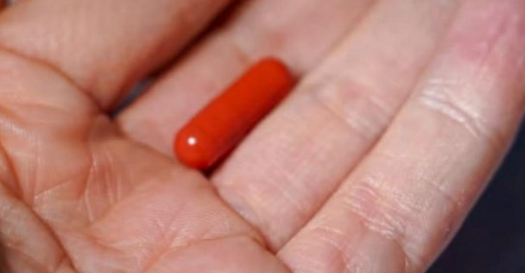“MDMA-assisted therapy has the potential to revolutionize the treatment of PTSD and other mental health conditions by enabling patients to confront and process trauma in a safe and supportive environment.” — Rick Doblin, Founder of MAPS (Multidisciplinary Association for Psychedelic Studies)
On Friday, drugmaker Lykos Therapeutics received disappointing news from the Food and Drug Administration (FDA), which has decided not to approve MDMA-assisted therapy for PTSD at this time. Instead, the agency requested further study on the safety and efficacy of the treatment, marking a significant setback for the company and the broader movement to integrate psychedelics into mental health care.
The FDA rejected Lykos Therapeutics’ application to use MDMA for PTSD treatment, citing the need for further safety and efficacy studies.via=psychiatristcns https://t.co/AaSvq8nXtK
— Gac Ciencia Forense (@GacetaCienForen) August 10, 2024
The announcement, delivered through a “complete response letter,” represents a major blow to the push for MDMA as a mainstream treatment for PTSD. Dr. Boris Heifets, an anesthesiologist at Stanford University who studies psychedelics, described the decision as a “huge blow to the field.”
Lykos plans to request a meeting with the FDA to discuss the decision and explore potential reconsideration. CEO Amy Emerson expressed deep disappointment, criticizing the request for another phase 3 trial as a move that would delay approval by several years. She argued that many concerns could be addressed using existing data or scientific literature.
“MDMA opens a door to a part of the mind that is often locked away due to fear and trauma. In therapy, it allows patients to access and heal these deep emotional wounds.” — Michael Mithoefer, Psychiatrist and MDMA-Assisted Therapy Researcher
The treatment had garnered significant support from patients, mental health leaders, and politicians, particularly due to the pressing need for effective PTSD treatments. The decision is seen as a critical moment for the psychedelics industry, influencing the future of other psychedelic drugs like psilocybin and LSD.
Dr. Mason Marks, a law professor at Harvard, believes the FDA’s decision may not deter the broader field, suggesting that the setback might even lead to intensified efforts from other companies. Despite the disappointment, Marks sees potential for ongoing progress in psychedelic research.
Supporters of MDMA-assisted therapy were dismayed by the FDA’s decision. The Heroic Hearts Project, a veterans organization, criticized the decision as “disgraceful” and indicative of bureaucratic obstacles impeding progress.
Opposition to Lykos’ application gained momentum recently, culminating in a contentious FDA advisory committee meeting where concerns about clinical research shortcomings were highlighted. The FDA’s spokesperson noted significant limitations in the data, preventing a conclusion on the drug’s safety and effectiveness for PTSD.
The debate surrounding Lykos’ application includes allegations of misconduct and bias in the clinical trials, which the drugmaker and involved therapists deny. Alan Davis, director of the Center for Psychedelic Drug Research and Education, emphasized the importance of rigorous research and expressed hope for a better outcome in the future.
FDA rejects MDMA as psychedelic&based treatment for mental health, PTSD https://t.co/E91qi7Y6NN#HealthNews#Wellness#Nutrition#Fitness#MentalHealth#PreventiveCare#HealthcareIndustry#MedicalResearch#PublicHealth#DiseasePrevention#HealthyLiving#Exercise#Diet#WeightLo…
— UMVA LAB (@umvalab) August 10, 2024
Despite the setback, Emerson reaffirmed Lykos’ commitment to advancing research and exploring all regulatory pathways to support patients. With another trial required, some experts, like Heifets, believe psilocybin might gain approval ahead of MDMA.
Quotes
- “In the right therapeutic context, MDMA can be a powerful tool for helping people reconnect with themselves and others, breaking down the barriers that trauma often creates.” — Anne Wagner, Clinical Psychologist and Researcher
- “The therapeutic use of MDMA is about more than just the drug. It’s about creating a space where healing can happen, where patients feel safe to explore and integrate their experiences.” — Alicia Danforth, Clinical Psychologist and Psychedelic Researcher
- “MDMA-assisted therapy could change the way we approach mental health treatment, offering a new avenue of hope for those who have not found relief through traditional methods.” — Ben Sessa, Psychiatrist and Psychedelic Researcher
Key Points:
i. FDA’s Decision: The FDA has opted not to approve MDMA-assisted therapy for PTSD, requesting further studies on its safety and efficacy.
ii. Impact on Psychedelics Movement: The decision represents a significant setback for the psychedelics industry, which viewed MDMA’s approval as a pivotal moment.
iii. Response from Lykos: Lykos Therapeutics plans to seek a meeting with the FDA and is disappointed by the need for an additional phase 3 trial.
iv. Support and Criticism: The treatment had strong support from patients and mental health advocates but faced opposition due to concerns about clinical research quality.
v. Future Outlook: Despite the setback, ongoing research and potential future approvals for other psychedelics like psilocybin may continue to advance the field.
Fallon Jacobson – Reprinted with permission of Whatfinger News



